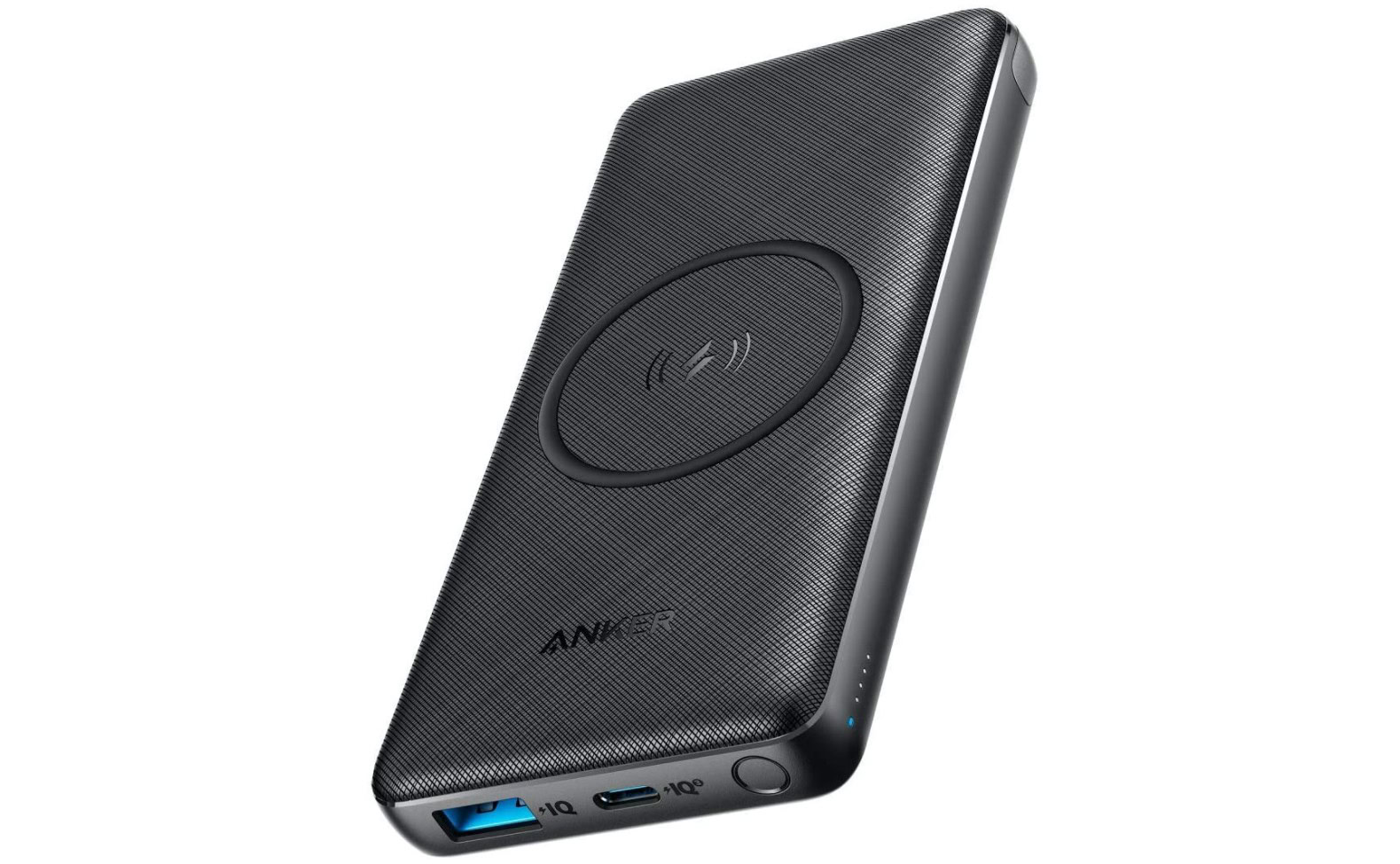Affiliate links on Android Authority may earn us a commission. Learn more.
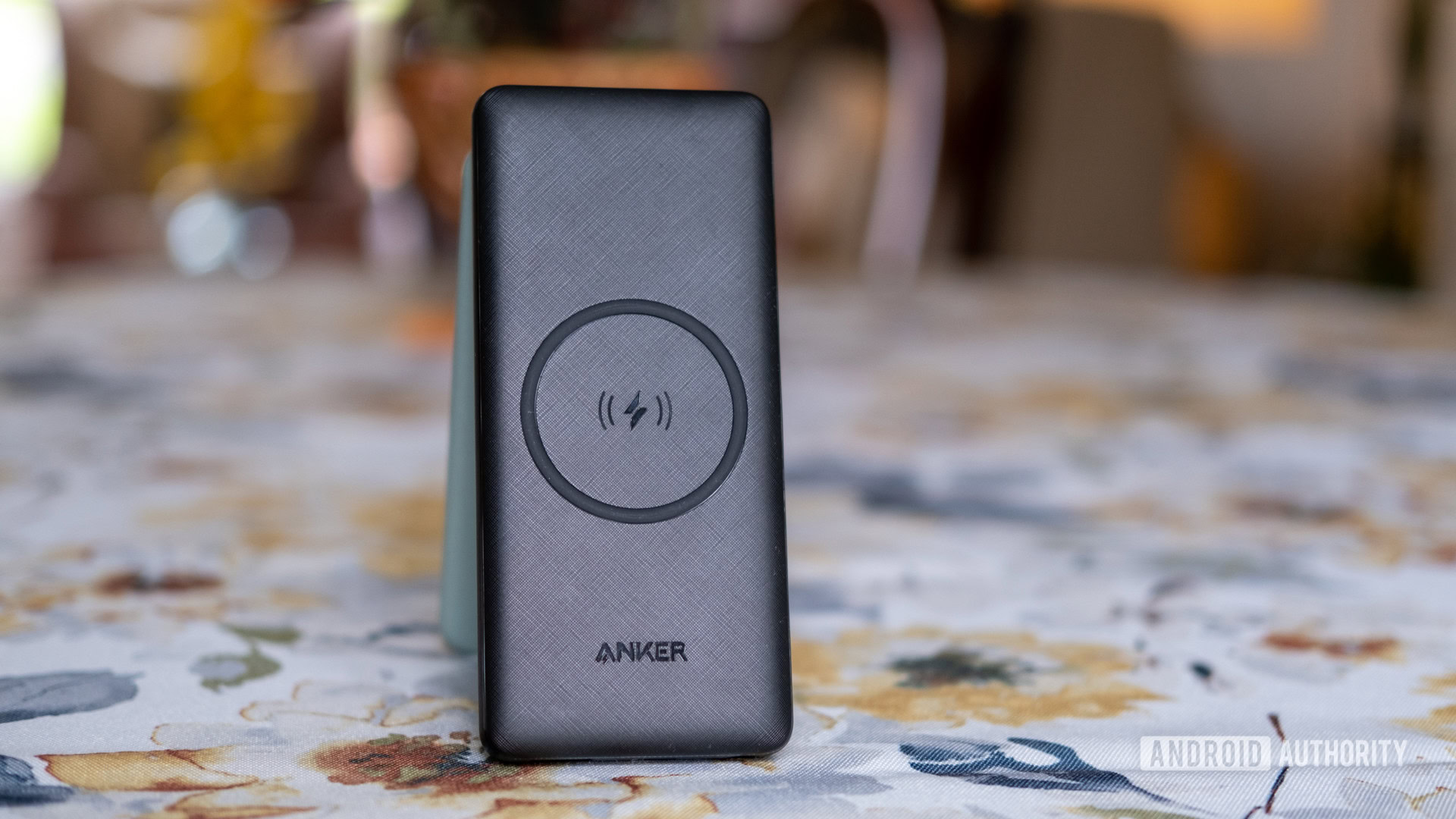

Anker PowerCore III Wireless review: Everything in moderation
November 3, 2021

Anker PowerCore III Wireless
MSRP:
What we like
What we don't like

Anker PowerCore III Wireless
The smartphone accessories market is a crowded one, yet some names stand out among the crowd. Whether it’s Spigen for cases or Moment for camera accessories, certain brands have become established as a marker for quality. Anker is another example, and it has perfectly cornered the charging market. With powerful wireless chargers and power banks to choose from, let’s check out the best of both worlds. This is our Anker PowerCore III Wireless power bank review.
What you need to know about the Anker PowerCore III Wireless power bank
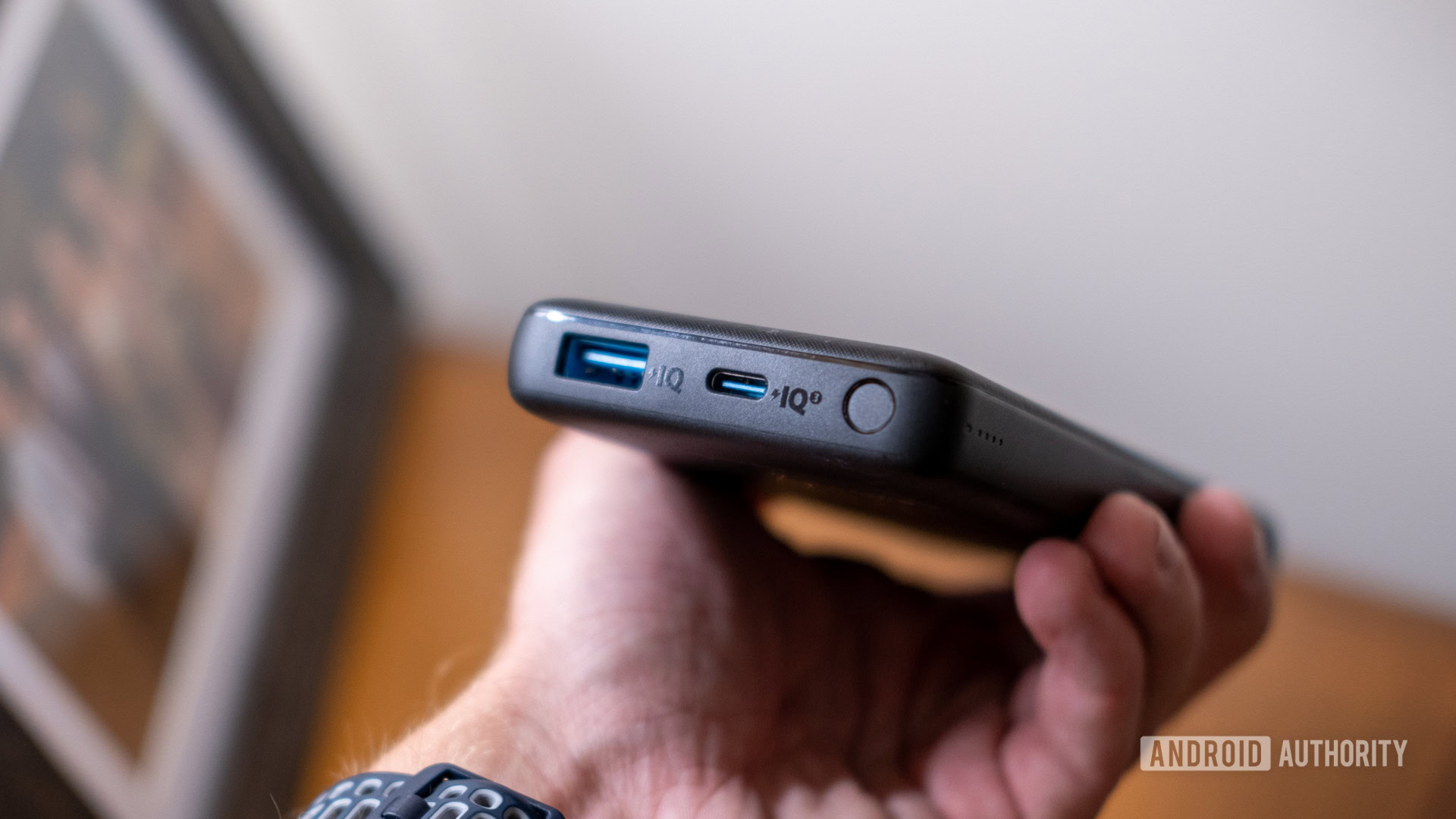
- Anker PowerCore III Wireless power bank (10,000mAh): $49.99 / £49.99 / €41.99
Anker’s PowerCore lineup covers the full range of power banks, but today we’re looking at a 10,000mAh option. The PowerCore III Wireless packs a USB-A port and a USB-C port, but the key selling point is its Qi charging pad. It tops out at 18W wired charging through the USB-C port, while the pad is capable of up to 10W output.
The entire charging bank is plastic, though it features a soft rubber ring to keep your phone in place on the charging pad. You can also check on the remaining charge with a series of four white LEDs mounted on the side. It’s small enough to shove in a backpack or large pocket, measuring 151.9 by 68.3 by 18.8mm and weighing just 245g.
Anker keeps things pretty light inside the packaging, with minimal paperwork to worry about. You’ll also find a USB-C cable and a lightly padded black carrying bag to keep your power bank safe. The bag is just barely large enough for the power bank and cable, though you’ll have to shove the cable carefully down the side.
What’s good?
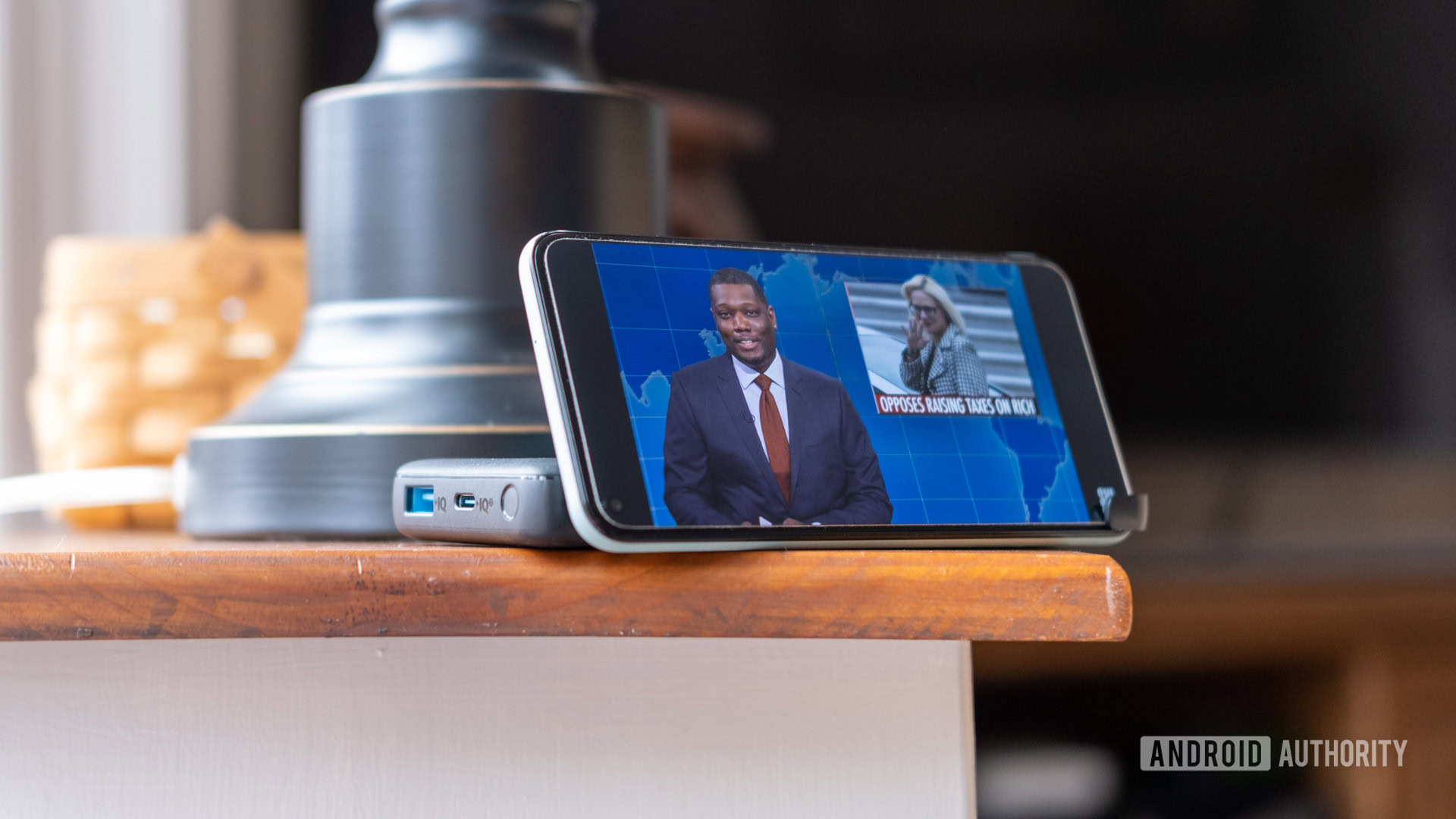
Anker’s PowerCore III Wireless power bank is a true do-it-all option. You can recharge up to three devices at a time, making a significant difference on long road trips or if you’re stuck away from an outlet. I found myself turning to the Qi charging pad frequently, especially when I needed to give my Galaxy Buds a quick jolt.
Anker's PowerIQ brings USB Power Delivery and Quick Charge into one powerful port.
Overall, the PowerCore III Wireless power bank is capable of decent, if not incredible, charging speeds. The USB-C port packs Anker’s proprietary PowerIQ 3.0 charging, which supports USB Power Delivery and PowerIQ 2.0 in a single port at up to 18W. PowerIQ 2.0 places an emphasis on Quick Charge devices, so you should have no problem charging a full range of USB-C-toting products. Anker’s power bank also offers passthrough charging so you can get your phone back to speed while you wait for the power bank to charge.
The drawstring charging pouch is a nice touch, especially when it comes to transporting the power bank. It can be easy to scratch some types of plastic, so the pouch offers a little peace of mind. The included USB-C cable is just under two feet long, the perfect length for a power bank. It’s long enough to give you some flexibility, yet short enough that it won’t get caught on stray corners in your house.
What’s not so good?
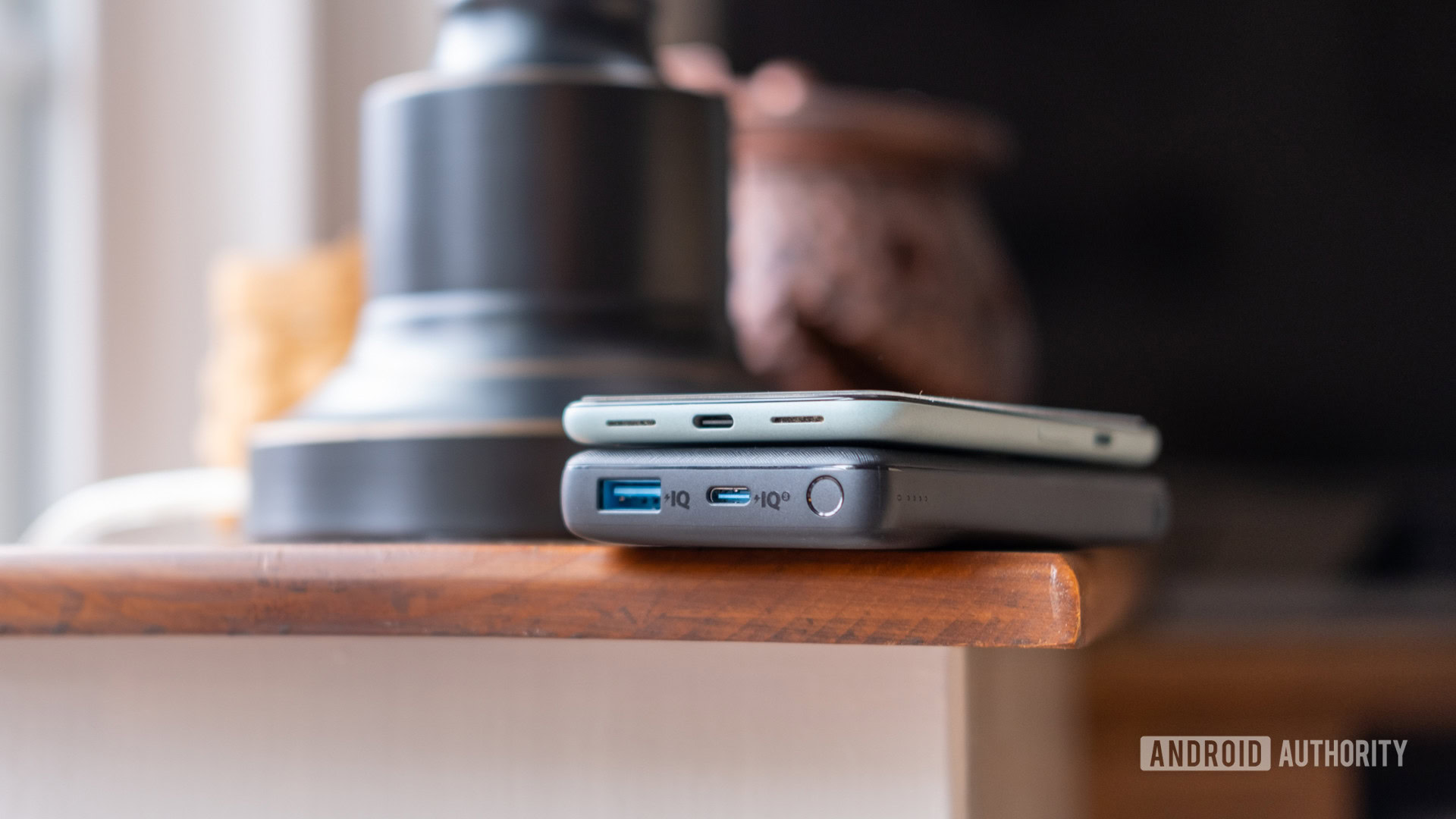
The PowerCore III Wireless performs best when it can focus on one device at a time. Unfortunately, I found that speeds plummeted when I used both outputs simultaneously. Despite seeing 14W speeds with either the USB-A or USB-C ports, I could only reach 8W speeds while using both. It didn’t seem to matter which port I tested, as speeds were consistent across the pair.
While the single-device charging speeds are decent, charging multiple devices seems to cap output at 8W per port.
The PowerCore III Wireless also did not offer enough power from the USB-A port to recharge a laptop — in the case of my testing, a Surface Laptop 3. While I could pick up a charge from the USB-C port, I could only achieve speeds in the neighborhood of 8.5W — a far cry from the 18W peak speeds. Some of the speed issues may be due to Anker’s lack of USB PD PPS support. While it’s not that common in ~$50 power banks, it’s a must if you want to charge a modern Galaxy flagship or the Pixel 6 series at close to top speeds.
You can check out my charging results in the table below, and all tests were performed with Anker cables.
| Anker PowerCore III Wireless Power Bank Test | Samsung Galaxy S21 | Apple iPhone 12 Pro | Microsoft Surface Laptop 3 |
|---|---|---|---|
| Anker PowerCore III Wireless Power Bank Test USB-A port | Samsung Galaxy S21 8.99V 1.62A 14.6W Standard: QC2.0 | Apple iPhone 12 Pro 4.93V 2.09A 10.3W Standard: APPLE | Microsoft Surface Laptop 3 Did not charge |
| Anker PowerCore III Wireless Power Bank Test USB-C port | Samsung Galaxy S21 8.87V 1.62A 14.4W Standard: USB PD 3.0 | Apple iPhone 12 Pro 4.93V 1.49A 7.3W Standard: APPLE | Microsoft Surface Laptop 3 9.06V 0.94A 8.52W Standard: USB PD 3.0 |
While 10,000mAh power banks aren’t always the fastest to recharge, the PowerCore III Wireless is particularly slow. Anker admits that it takes about 4.5 hours to fill the massive cell, and my testing matched that rate. The good news is that you can charge your phone through the power bank while it recharges, which should keep an extra outlet free.
Anker PowerCore III Wireless power bank review: Should I buy it?
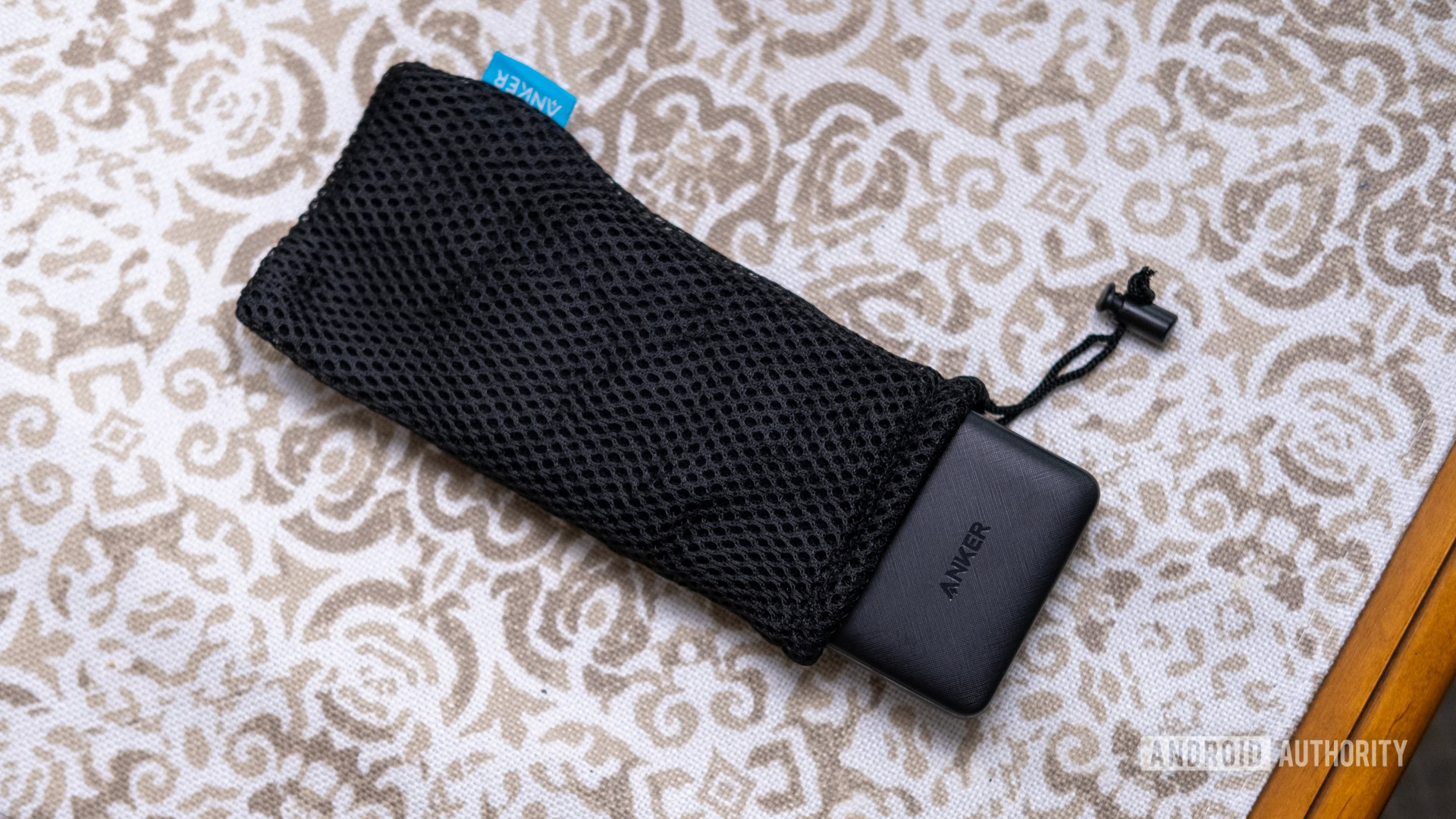
If you have a variety of devices and you want a well-built power bank that can keep them all going, this is a good option. The Anker PowerCore III Wireless can recharge three devices simultaneously, though it will take longer the more devices you add. Anker’s sliding kickstand and carrying pouch are nice touches, but I’d rather have faster speeds for my $50.
There are heaps of other power banks to choose from if you’re ready to venture outside of Anker. Samsung’s 25W Wireless Portable Battery ($79) offers up to 25W speeds with USB PD PPS support, as well as a wireless charging pad and metal construction. It’s pricey, but you’re paying for top quality. Otterbox also has a new gaming-focused folding wireless power bank ($59). It offers 18W USB Power Delivery charging with a 10W wireless pad and Otterbox’s signature durability.
